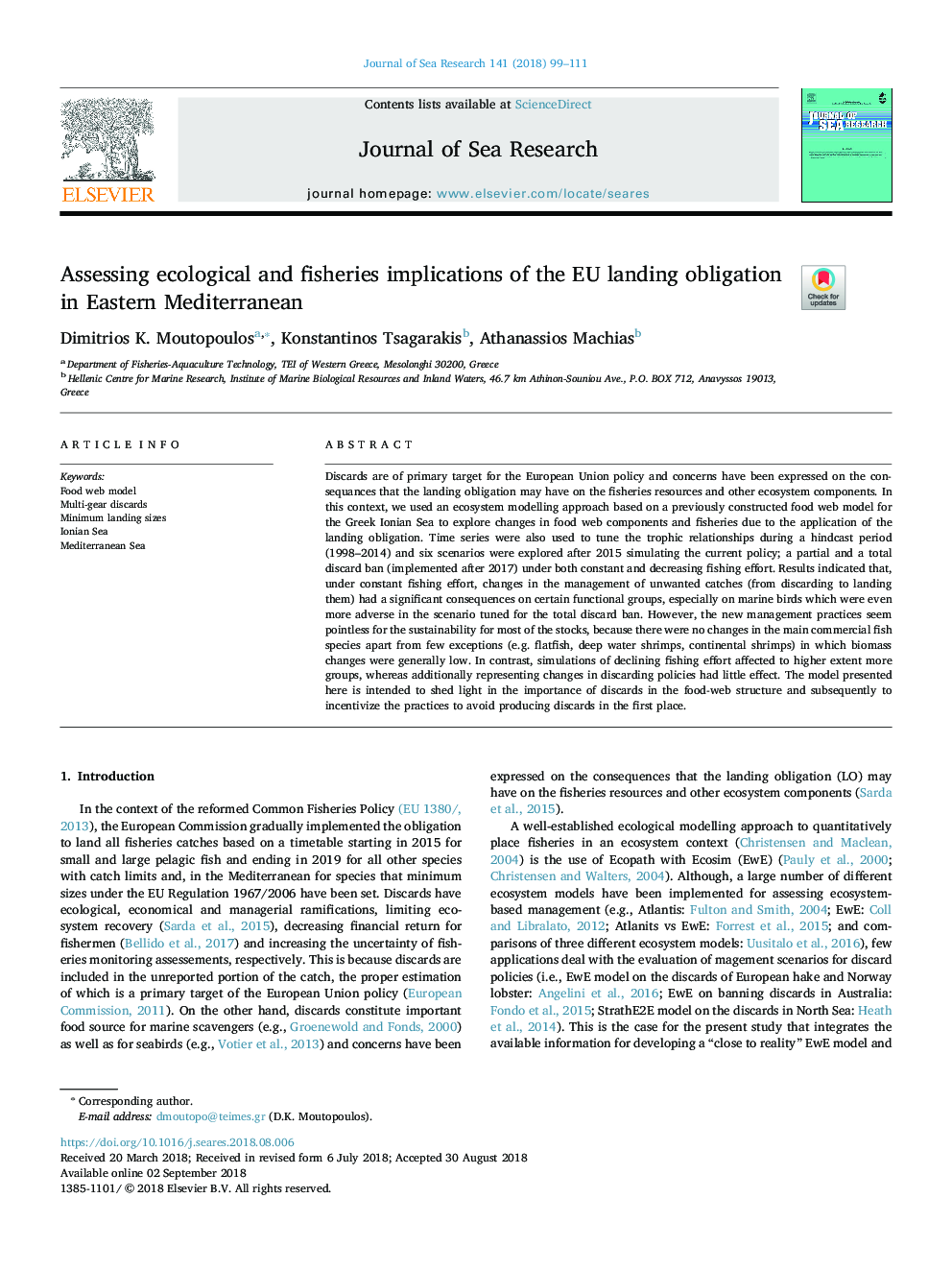| Article ID | Journal | Published Year | Pages | File Type |
|---|---|---|---|---|
| 10130384 | Journal of Sea Research | 2018 | 13 Pages |
Abstract
Discards are of primary target for the European Union policy and concerns have been expressed on the consequances that the landing obligation may have on the fisheries resources and other ecosystem components. In this context, we used an ecosystem modelling approach based on a previously constructed food web model for the Greek Ionian Sea to explore changes in food web components and fisheries due to the application of the landing obligation. Time series were also used to tune the trophic relationships during a hindcast period (1998-2014) and six scenarios were explored after 2015 simulating the current policy; a partial and a total discard ban (implemented after 2017) under both constant and decreasing fishing effort. Results indicated that, under constant fishing effort, changes in the management of unwanted catches (from discarding to landing them) had a significant consequences on certain functional groups, especially on marine birds which were even more adverse in the scenario tuned for the total discard ban. However, the new management practices seem pointless for the sustainability for most of the stocks, because there were no changes in the main commercial fish species apart from few exceptions (e.g. flatfish, deep water shrimps, continental shrimps) in which biomass changes were generally low. In contrast, simulations of declining fishing effort affected to higher extent more groups, whereas additionally representing changes in discarding policies had little effect. The model presented here is intended to shed light in the importance of discards in the food-web structure and subsequently to incentivize the practices to avoid producing discards in the first place.
Related Topics
Physical Sciences and Engineering
Earth and Planetary Sciences
Oceanography
Authors
Dimitrios K. Moutopoulos, Konstantinos Tsagarakis, Athanassios Machias,
